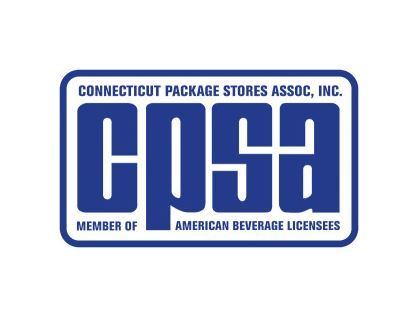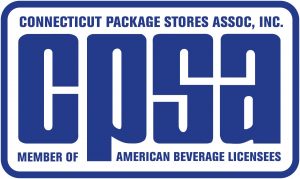

Carroll J. Hughes, Executive Director, Connecticut Package Store Association.
By Carroll J. Hughes, Executive Director CPSA
May 9, 2018 marked the end of another legislative session for the Connecticut Package Stores Association (CPSA). Staff members faced many of the perpetual battles from years past, but also encountered new issues, keeping everyone on their toes.
The soon-departing Governor Dannel P. Malloy did not disappoint in predictions that he would, for the seventh straight year, attempt to eliminate minimum bottle pricing. This prediction was exacerbated by another of his proposals that would have eliminated all posted pricing, including that of wholesalers and manufacturers. This year, these bills were taken up in the Finance Committee and the General Law Committee. CPSA organized a group of retailers in Hartford to stand in opposition to the bills with the assistance of the Wine and Spirits Wholesalers of Connecticut (WSWC), the Connecticut Small Brand Council (CSBC), and a few other individuals and groups.
As usual, the main proponents of the bills were Total Wine and Bev Max through direct representation by an organization called the Connecticut Alcohol Retail Exchange (CARE). CARE purports to represent anyone for a fee to help “modernize liquor laws in Connecticut,” regardless of how those changes may affect the industry, the economy, and consumers. Reportedly, the year COSTCO and Walmart paid into the organization, their bill was not reported from the Finance or General Law Committees.
Other opponents of package stores included big box retail stores, who sought changes to the grocery beer definition in order to allow beer in hundreds of new retail outlets.
A proposal from a couple of farm wineries was also submitted, which would have allowed Connecticut Farm Wineries to sell their products directly to in-state food stores. Both the beer and wine expansion proposals failed to make it out of the General Law Committee.
Also active this year were a couple of committee proposals by the Governor and others that would have added liquor and wine bottles to the state’s bottle bill. These containers would have been added to mandatory deposit and take-back requirements. This legislation was also not reported from the committee. An alternative proposal to increase the handling fee was reported from the committee with a provision that the increase would go to the state’s recycling centers.
There were other bills that would have:
- Allowed distilleries to charge for drinks at their manufacturing facility. CPSA supported the bill in an effort to promote an increase in the sales of CT made products.
- CPSA also supported an increase in the quantity of beer sold by craft breweries directly to consumers from one to two cases.
Another, more significant, issue that returned for the third year would have allowed the direct sale of wine by out-of-state retailers to Connecticut consumers. This bill was not reported from committee, but proponents of the bill persisted to the end of the legislative session. The Wine and Spirits Wholesalers of Connecticut (WSWC) drafted language that would only have allowed rare wines to be directly sold in the state, but only through a package store, and only if the wine was not available through a Connecticut wholesaler.
 On Recreational Marijuana
On Recreational Marijuana
One of the more unusual bills this year was to allow the sale, growing and use of recreational marijuana. It was an unusual bill not by the nature of what it would do, but how proponents used the bill.
One group of proponents for recreational use had strong ties to beer distribution. The group planned to distribute and sell through package stores. The problem with this is twofold. Those that regulate medical marijuana had already set a system for the distribution of medical marijuana that involves a strong and highly regulated retail structure. The Department of Consumer Protection would not even allow pharmacies to distribute marijuana. The seller has to construct special facilities with major security and specific procedures in place, which are very expensive and difficult to meet.
Most importantly, the general public cannot access these premises. Only prequalified individuals have access to dispensaries. The cost to build and operate the facility alone is extremely high.
Other interest groups are seeing this as an opportunity to explore an expansion of permits, such as package stores selling marijuana. Unfortunately, several interest groups had plans to take certain items that package stores exclusively maintain in permit definitions, such as limitations on new stores, and what other retailers are not allowed to sell, like beer or wine. These interests were anxious for package stores to support marijuana sales, which creates the argument that stores have enough with the new sales items, so they no longer need exclusive rights and regulations on the sale of alcohol products.
There was also talk of the population ratio of permits and the public safety issue it would create. No one in a regulatory agency would even agree to allow package stores to sell the product. The real agenda was to let package stores take the bait, and go for the sale on a bill that would not and may never pass the General Assembly to achieve a different goal. It would be the impetus needed to initiate a bill on the transfer of function and change to the retail sale of alcohol beverages, which would pass the legislature and force many stores out of business.
Whatever happened to DISCUS?
Some members of the alcohol beverage industry who have been in the business for over 25 years wonder, whatever happened to the Distilled Spirits Council of the United States (DISCUS)?
DISCUS was at one time a typical trade or professional association representing alcohol beverage manufacturers. Before the late 80s, manufacturers, wholesalers and retailers had a common goal just like every other industry trade association. There were many other groups that did everything that they could to promote their products, assist their partners, the wholesalers and retailers, and help further use of their products in the consumer market.
As any good trade association or professional association knows, the manufacturing level does not typically have public credibility at the consumer level. Such grassroots have always been a coveted relationship to an industry in cases of taxes and many other problems that need public support. The very credibility of products as a core was tied to retailers and their customers.
In the past 10 or 15 years, DISCUS has done everything in its power to alienate its retail sector with no apparent goal or gain. Every year during the legislative session, DISCUS makes its annual appearance to mark some obscure friction point that is certain to alienate any residual retailer loyalty.
It should come as no surprise that retailers have supported practices and policies that are not always beneficial to product manufacturers. At times, retail reactions to DISCUS interests can be gratuitously hostile, but understandable.
DISCUS policies are contrary to most other industries, who usually do whatever they can to help and motivate its industry retail sellers. Evidently, DISCUS has not only lost its public relations book, but also has misplaced its industry growth and priority policy. Will they ever find them again?
Interested in learning more about CPSA and member benefits? Simply visit ctpsa.com.



